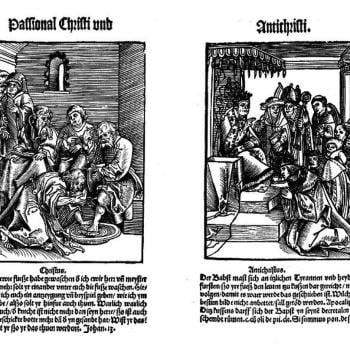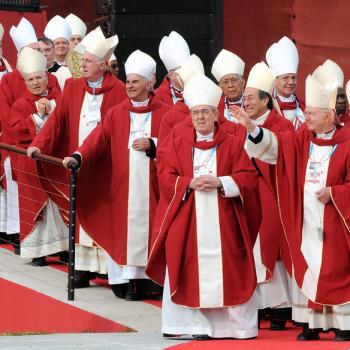The notable Christian thinker Peter Leithhart has written an essay entitled Why Evangelicals Can’t Write on the difficulty evangelicals seem to have in writing good fiction. It all comes down, according to Leithart, to the colloquy at Marburg where Zwingli rejected Luther’s affirmation of the Real Presence of Christ in the Sacrament. Leithart, who is Reformed and not Lutheran, sees Zwingli’s split between reality and meaning as having huge consequences for the Protestant imagination. You need to read the whole essay, but here is an excerpt:
Blame it on Marburg. More precisely: Blame it on Zwingli. A Zwinglian poetics leaves us with three choices: Either a flat mimetic realism that gives literary expression to “the real” without attempting to penetrate beyond the surface; or a flat didacticism that ignores the real in its haste to get to the point; or an allegorism that forges arbitrary links between the real and the symbolic, and in the end swallows up the real in its meaning. (Mr. By-Ends, Mr. Worldly-Wiseman, Faithful, and Hopeful are mere symbols, silhouettes of characters rather than characters.) Although, to give Bunyan his due, he was here following a typical (and very Catholic) medieval pattern in literature, while adding the astounding innovation of homely and realistic dialog. Nevertheless, the cardboard charactizations strike us the way they do for a reason.












